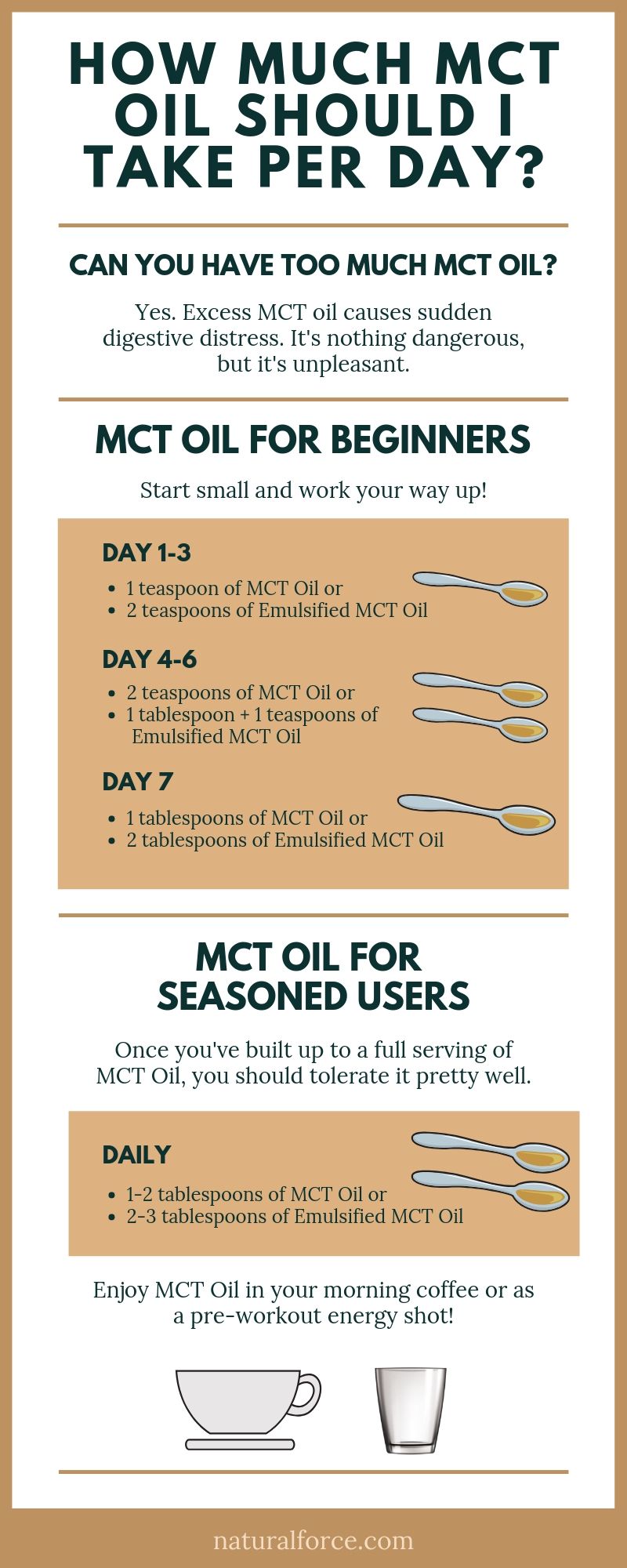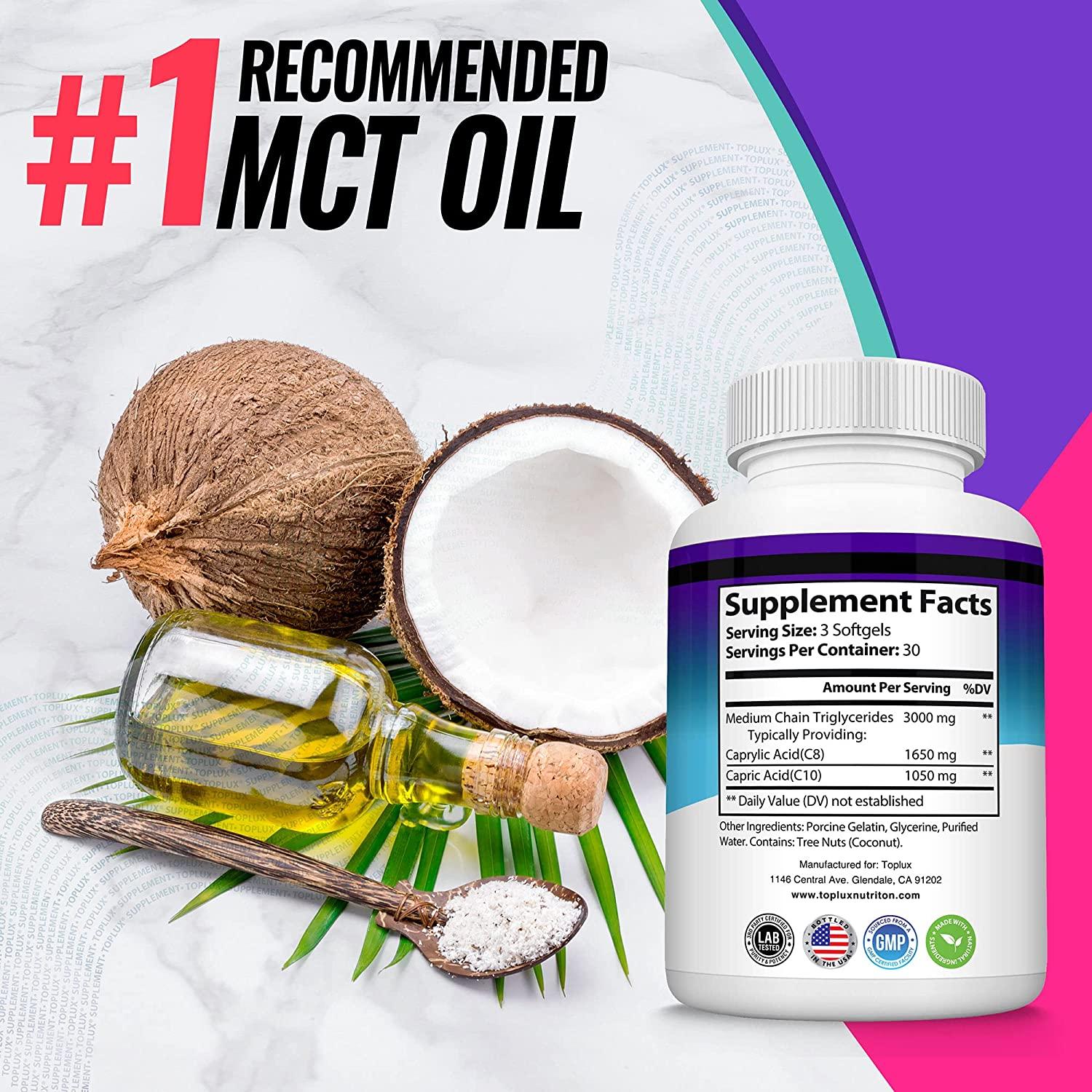How Much Mct Oil Per Day On Keto

The ketogenic diet, a high-fat, very low-carbohydrate regimen, has surged in popularity for its potential to promote weight loss, improve blood sugar control, and enhance cognitive function. However, navigating the nuances of keto can be challenging, particularly when it comes to supplemental fats like MCT oil. Misjudging the optimal dosage can lead to digestive distress or hinder progress, making a clear understanding of its usage paramount.
This article delves into the question of how much MCT oil to consume daily on a keto diet, drawing on scientific research and expert opinions to provide a comprehensive guide. We'll explore factors influencing individual needs, potential benefits and side effects, and practical tips for incorporating MCT oil safely and effectively into your ketogenic lifestyle.
Understanding MCT Oil and Ketosis
MCT oil, short for medium-chain triglyceride oil, is a concentrated source of fats that are more easily digested and metabolized than long-chain triglycerides (LCTs) found in many common oils. These fats are rapidly converted into ketones, which serve as an alternative energy source when carbohydrate intake is severely restricted, as in the ketogenic diet.
Ketosis is the metabolic state where the body primarily burns fat for fuel instead of glucose. Supplementing with MCT oil can help accelerate ketosis and enhance its effects.
Benefits of MCT Oil on Keto
MCT oil offers several potential advantages for individuals following a keto diet. It can boost energy levels, improve satiety, and support weight loss.
Research suggests that MCTs may also have cognitive benefits and help regulate blood sugar.MCTs can improve athletic performance.
Determining the Right Dosage
The optimal daily intake of MCT oil varies based on individual factors such as tolerance, goals, and overall dietary composition. Starting with a low dose and gradually increasing it is crucial to minimize potential side effects.
Most experts recommend beginning with 1 teaspoon (5 ml) per day and gradually increasing to a maximum of 1-2 tablespoons (15-30 ml) per day, divided into multiple doses. This gradual approach helps the body adapt to the increased fat intake.
Factors Influencing MCT Oil Dosage
Several factors influence the ideal MCT oil dosage. These include individual tolerance, the type of MCT oil, and overall health.
Those with sensitive stomachs may need to start with an even smaller dose, while individuals with higher activity levels may tolerate a larger amount. The specific type of MCT oil, especially the ratio of caprylic acid (C8) and capric acid (C10), can also impact tolerance.
Potential Side Effects and How to Avoid Them
Consuming too much MCT oil, especially when starting, can lead to digestive issues such as nausea, diarrhea, and stomach cramps. This is often referred to as "keto flu" or "gut distress."
To minimize these side effects, start with a low dose, take MCT oil with food, and spread the daily intake throughout the day. Choosing an MCT oil with a higher concentration of caprylic acid (C8) may also improve tolerance.
"Starting low and going slow is the golden rule when introducing MCT oil," advises Dr. Emily Carter, a registered dietitian specializing in ketogenic diets. "Pay close attention to your body's response and adjust the dosage accordingly."
Incorporating MCT Oil into Your Keto Diet
MCT oil can be easily incorporated into the keto diet in various ways. It can be added to coffee, smoothies, salads, or used in cooking at low temperatures.
However, MCT oil has a low smoke point, so it's not suitable for high-heat cooking. Many people blend it into their morning coffee, often referred to as "bulletproof coffee," to boost energy and satiety.
Choosing the Right MCT Oil
Not all MCT oils are created equal. Consider the source, purity, and composition when choosing an MCT oil product.
Look for MCT oils derived from coconut oil, as it's a rich source of MCTs. Choose products that have been third-party tested for purity and potency, and check the ratio of caprylic acid (C8) and capric acid (C10) to find a blend that suits your needs.
Expert Recommendations and Guidelines
Registered dietitians and healthcare professionals often recommend a personalized approach to MCT oil supplementation on the keto diet. Consultation with a qualified professional is advisable, especially for individuals with pre-existing health conditions.
General guidelines suggest that most individuals can safely consume up to 1-2 tablespoons of MCT oil per day, but individual tolerance should always be the primary guide. Monitoring ketone levels and overall well-being can help determine the optimal dosage.
A 2015 study published in the *Journal of the Academy of Nutrition and Dietetics* found that MCT oil supplementation, when combined with a ketogenic diet, can lead to greater weight loss compared to a ketogenic diet alone.
The Future of MCT Oil Research
Ongoing research continues to explore the potential benefits of MCT oil for various health conditions, including cognitive decline, epilepsy, and metabolic disorders. Future studies may further refine dosage recommendations and provide a more nuanced understanding of its effects.
As research evolves, staying informed about the latest findings is essential for making informed decisions about MCT oil supplementation on the keto diet. Consulting with healthcare professionals and registered dietitians will continue to be vital.
In conclusion, determining the appropriate MCT oil dosage on a ketogenic diet requires a personalized approach that considers individual tolerance, health status, and dietary goals. Starting with a low dose, gradually increasing it, and paying close attention to your body's response are key to maximizing its benefits and minimizing potential side effects. By following these guidelines and staying informed, you can effectively incorporate MCT oil into your ketogenic lifestyle and optimize your health outcomes.


















